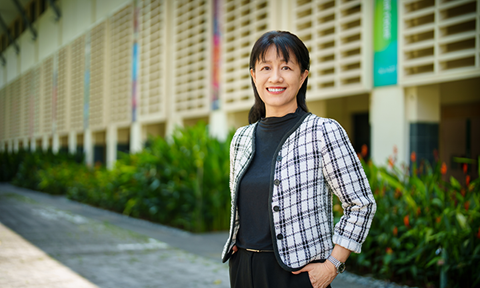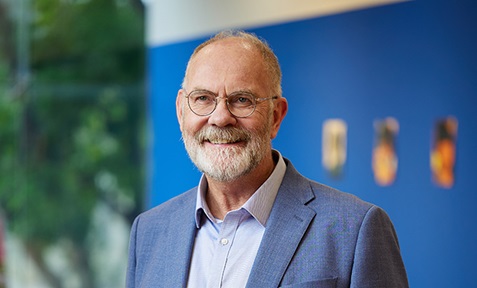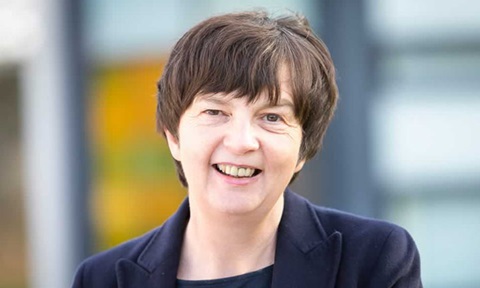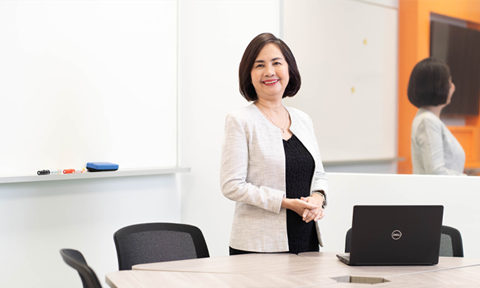Post-PSLE: Tough transition to a vastly different secondary school education
Almost 40,000 Primary 6 pupils have completed what is commonly characterised as a stressful phase in their schooling: the Primary School Leaving Examination (PSLE). The oral, listening comprehension and written exams were conducted over a period from mid-August to early October.
The marking of the written exams has just been completed, and all eyes are now focused on the release of the exam results at the end of November.
The PSLE in 2023 has been relatively free from the periodic media controversies that erupt over the alleged stress induced by what some parents and pupils deem as overly demanding questions, especially in the case of the mathematics papers.
Nevertheless, there is still a debate over whether the PSLE ought to be scrapped. For instance, MP Denise Phua has long championed the removal of the PSLE and replacing it with a 10-year through-train system that allows a smooth transition from primary to secondary schooling.
She has argued that this will reduce exam-induced stress among pupils, parents and teachers, as well as free up a substantial portion of curriculum time that is spent on preparing for the various exam subjects.
Her pleas for the removal of the PSLE would appear to have extra credence in the light of the Malaysian Ministry of Education’s decision in 2021 to abolish its equivalent of this exam.
Speaking in Parliament earlier in 2023, Education Minister Chan Chun Sing rejected calls for the PSLE to be scrapped. He claimed it was “neither realistic nor desirable to shield our children from all the stresses they will have to face in life, especially in a more competitive and globalised world”.
At the same time, he stated that the PSLE was “an important checkpoint” in assessing pupils’ competencies in core concepts as they transited to secondary school. In addition, their exam results would guide pupils’ selection of subjects at appropriate levels.
This debate keeps recurring, testifying to the high-stakes nature of the exam and its role as a major mechanism for sorting students into various schools and academic programmes at the secondary level.
In a bid to reduce the stress associated with the PSLE, the Ministry of Education (MOE) introduced the revised PSLE scoring system in 2021. Two key features of this system are the reduction in the score range and the recognition of individual pupils’ objective achievement, regardless of how well their peers have done.
These changes came in the wake of school tests and exams being progressively reduced since 2019 – a move that has culminated in the removal of all mid-year exams in primary and secondary schools in 2023.
But let us pause and take stock: is the PSLE the be-all and end-all of six years of primary schooling?
It is interesting to note that MOE’s Desired Outcomes of Education, which state developmental outcomes for the various key stages of education, make no explicit mention of the PSLE.
Instead, the primary school outcomes focus on general attributes. These include pupils being able to distinguish right from wrong, knowing their strengths and areas for growth, having a lively curiosity about their surroundings, taking pride in their work and being able to cooperate, as well as share and care for others. There is therefore much more value to primary schooling than preparation for this major exam.
Big change for pupils
It may also be helpful to start thinking about what lies ahead for pupils after the PSLE as they head to secondary school in 2024.
This transition is major for most pupils, as it represents a new and different phase in their schooling. First, it means uprooting oneself from a familiar school environment and moving to uncharted territory.
Second, there are new friends to be made, even for pupils who choose their affiliated secondary school, as some former primary school classmates will move to different schools. There will also be new friends who come from non-affiliated primary schools.
Third, not only are there new subjects in the curriculum, such as design and technology, and geography, as well as food and consumer education, but the difficulty levels of more familiar subjects such as English and mathematics will also increase.
Next, the secondary school landscape is more diverse than its primary counterpart, with a wider variety of schools and programmes. For instance, there are programmes such as the Art Elective Programme and Music Elective Programme, in addition to the option of studying a third language such as French, Spanish and Bahasa Indonesia.
There are also integrated programme schools, such as Raffles Institution and the National University of Singapore High School of Mathematics and Science, which offer six-year courses under which students do not need to take the O-level exams at the end of Secondary 4.
Besides integrated programme schools, another category of schools called specialised schools offer an Institute of Technical Education Skills Certificate at the end of Year 4.
This particular student cohort will be the first to experience full subject-based banding in all secondary schools, with the exception of integrated programme schools and specialised schools.
This banding system offers greater flexibility than the previous streaming system in terms of taking subjects at differing difficulty levels, depending on their subject-specific strengths and learning needs, along with access to a wider range of subject offerings and programmes.
At the same time, form classes will consist of a mix of students taking subjects at differing difficulty levels. Students will spend about a third of curriculum time taking what are termed common curriculum subjects, such as art, music, physical education, design and technology as well as character and citizenship education, together.
This cohort will also be the first to sit a new common national exam, the Singapore-Cambridge Secondary Education Certificate, in 2027. This exam will replace the current O-level and N-level exams, and will reflect the differing difficulty levels at which each subject is taken.
Yet another significant change awaiting new Sec 1 students is the fact that while co-curricular activities (CCAs) are optional in primary school, they are compulsory in secondary school.
In addition to taking part in school-based activities, students can also choose a non-school-based Strategic Partnership CCA for water polo, athletics and ethnic dance. These partnerships involve MOE, Sport Singapore and the National Arts Council and bring together students from various secondary schools.
Not their parents’ days
Sec 1 students will be navigating all of these changes even as they cope with the challenges of adolescence during their journey towards adulthood.
One key challenge is the growing importance of personal identity.
Teenagers may desire more independence from their parents, as their peers assume a greater role in their lives. The secondary school years are vital for them in terms of developing a sense of belonging with their friends and their school, while they explore and build their personal talents and qualities.
These pupils are on the cusp of a secondary school experience that is markedly different from that of their parents, who most likely underwent secondary schooling during a period spanning the mid-1970s to the mid-2000s.
The pupils’ transition to secondary school is taking place amid a national rethinking of meritocracy, with talk of changing the definition of success beyond a narrow fixation on academic grades.
The idea of a continuous and lifelong meritocracy has also been broached, in which an individual’s performance in school does not become the sole determinant of their chances in life.
Even though parents may not have had first-hand experience of such a different school landscape, it is important for them to work together with their children to choose a school that will best support individual growth and development.
So, as this cohort of pupils nears the close of their primary schooling, there is much more for them to think about than mere PSLE scores. The scores ought not to define their personal worth.
Rather, an exciting journey of personal discovery awaits them, starting with their secondary school years.
- Jason Tan is associate professor of policy, curriculum and leadership at the National Institute of Education.



.tmb-listing.jpg?Culture=en&sfvrsn=41a4c4ea_1)


